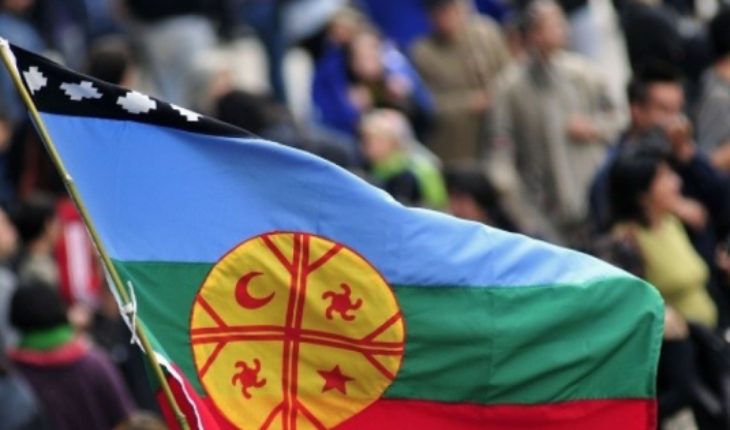Chile’s history has been an expression of systematic discrimination with indigenous peoples. This must be said clearly, in order to avoid interpretations that justify the premeditated and aggressive attempt of those who have administered the State, to assimilate other cultures, in an absurd eagerness to conquer the so-called “national unity”.
Instead of recognizing the richness of the coexistence of beautiful diversity, lifestyles have been sought to be uniform, in a process that has cost a lot of suffering and many deaths.
But as is often the case in life cycles, things are starting to change decisively. The second report of the Center for Intercultural and Indigenous Studies of the Catholic University, on relations between indigenous peoples and the rest of the population, delivered very important and revealing results. This is mainly because in two years people considered Mapuche increased from 12% to 23% and the adherence of non-Mapuche to the indigenous cause, grew by six percentage points, from 33% to 39%.
It is very symptomatic that more than three million people in Chile were considered Mapuche and that support for our cause has increased markedly. In a first analysis of this data, I tend to think that Chileans have collectively become aware of this history of unwarranted discrimination and the profound collateral damage she has generated. Moreover, many generations of Chileans, have been direct witnesses, through the action, omission or simple passivity of how our peoples, have been victims of both state violence and social behavior that has become part of this inten annihilation.
But I also have the conviction that there’s something else. This situation, especially the Mapuche people, is at the same time the daily experience of all those excluded from Chile. Indeed, what differentiates the mistreatment suffered by a Mapuche only by the fact that it has carried an indigenous surname from the permanent humiliation of any Chilean who is enrolled in that sinister “Dicom” payroll? And what about those hundreds of thousands of Chileans who, having worked their whole lives and made a contribution to the country’s development, receive as a reward an unworthy pension, unable to meet even the most basic needs?
The examples that show this similarity between indigenous peoples and the poor and excluded from development are too many. Perhaps the only difference is that the Mapuche as a people, we have never stopped fighting and have never given ourselves to the resignation of believing that things cannot change. Many of our brothers have died to defend our territorial, political and economic rights. It is likely that the blatant murder of Camilo Catrillanca, has left in brutal evidence, such as the lie and the concealment of the truth, has been a way of maintaining the “status quo”.
Paradomically, much of this unconfessable history has occurred in “democracy.” Once again we can make a link of these shared experiences, remembering facts such as the slaughter of the Seguro Obrero, Puerto Montt, Ranquil, Santa María and the so-called “pacification” of La Araucanía.
Indeed, the Chilean has realized that those who are in the way of the repression of the indigenous world are the same ones who today repress and beat teachers, teachers and students, when they claim their rights. They are also the same ones who rightly ignore older adults when they leave for dignified pensions and better foresight. They are the same people who attack workers when they seek wage improvements. Or the same ones who belittle the demands of fishermen, when they fight for fair fishing quotas.
The Chilean has realized that the same people who repress the Mapuche people, also suppress them and keep them impoverished.
Adherence to the Mapuche and indigenous cause in general is also related to a greater awareness of the people-nation. In other words, many people have come to conclude that the Chilean “motherland” is not Spain or any foreign power, but that it is legitimately the Mapuche people, which were liberated before Chile from the Spanish Crown.
Another very important issue to consider is that the Chilean is also recognizing the consistency of indigenous thought and lifestyle. Those who first defend the environment, those who, before others, oppose hydroelectric plants, those who defend marine quotas or those who have given their lives to defend mother earth, is the Mapuche people.
The environment today is in grave danger not only from global warming, but also because of the extractivist model that in 130 years has destroyed the entire ecosystem that for thousands of years indigenous peoples have cared for. An important part of Chilean society is noting that our defense also helps Chile have a better future for generations to come.
Our language of regaining rights and achieving a society for the “good life” of the majority and not for the “good functioning” of the market, expressed in constant mobilizations, is the same of the oppressed sectors, the unheard sectors and the sectors Attacked.
But today, thanks to the advancement of communications, the Chilean accesses information that was previously denied by the political sector and the instructional system. The question now is how we continue to add to membership, but above all how we achieve a more perfect union, which allow us to break the chains of political, economic and social segregation, that make us defeat both poverty and the decisions that maintain and reproduce the exclusion of non-indigenous and indigenous, with fair impartiality.
We must promote an understanding of Chile, which allows us to visualize that the more the Mapuche people and indigenous peoples develop, the better life all the inhabitants of Chile will have complete.
As soon as we break our chains, poor, excluded and over-indebted Chile will have here in us, a more powerful ally. We can’t walk alone, our destiny is intimately linked.
The study to which we alluded also shows a very important political triumph of the indigenous world. Indeed, 70% of respondents acknowledge that there is a conflict between the State and indigenous peoples. It is clear that this is an unresolved issue, primarily because of the economic interests maintained by this small group, which comes from or protects the political sector that administers the country. Forestry, for example, owns 3 million hectares, while the Mapuche people have no more than 900 thousand Bío Bío to the south; as long as these economic interests continue to exist, nothing will be resolved.
To advance solutions, dialogue tables must be ended to discuss small portions of land, to open a broader dialogue that focuses, first, on reconciliation. At that table, not only the Mapuche state and people should be seated with other indigenous peoples, but also the business world. The idea will be to try to solve the problem with real political will. As long as this does not happen, a tax dialogue will continue, which will not solve the underlying issue for the Chilean nation and the Mapuche nation.
The content poured into this opinion column is the sole responsibility of its author, and does not necessarily reflect the editorial line or position of El Mostrador.





